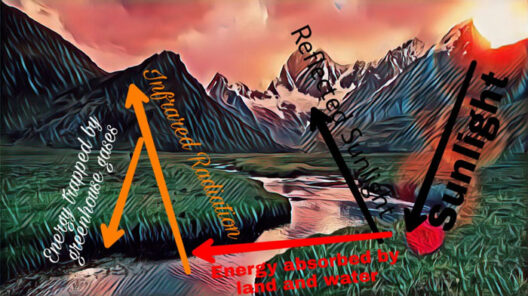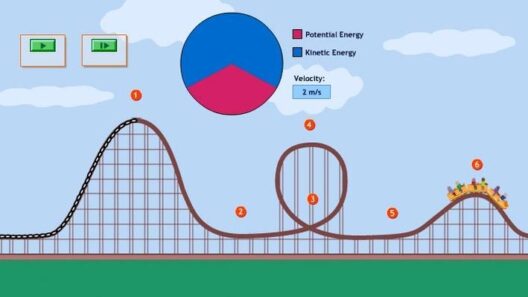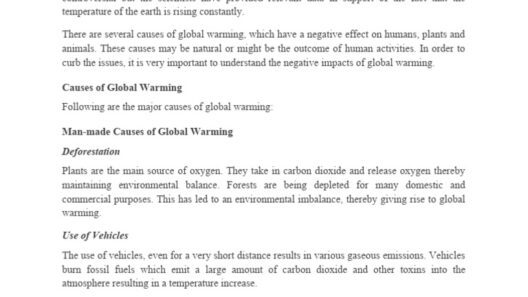Global warming represents one of the most pressing challenges of the 21st century, driving us to confront not only the phenomenon itself but also the intricate constraints that impede our progress toward effective solutions. Understanding these hurdles is crucial as they shape our collective response to climate change and highlight the multifaceted nature of this global dilemma. This discussion will delve into two major hurdles: the scientific complexities of climate change and the sociopolitical constraints that hinder actionable change.
As we embark on this discourse, it is essential to grasp the underlying scientific realities of global warming, as they are inherently interconnected with the policy decisions made at local and global levels. A nuanced comprehension of these hurdles provides insight into why addressing global warming is far from straightforward.
The Scientific Complexities of Climate Change
Climate science, a domain characterized by its intricacies, often presents a formidable challenge. The interplay of greenhouse gases, oceanic processes, and atmospheric reactions creates a multifaceted system that is not easily deciphered. The accumulation of carbon dioxide, methane, and nitrous oxide in our atmosphere forms a blanket that traps heat and drives up global temperatures. However, the thresholds and tipping points within this system are complex, making it difficult to predict future scenarios with absolute certainty.
One critical aspect of these scientific complexities involves climate feedback loops. For instance, as ice caps melt due to rising temperatures, the Earth’s albedo effect diminishes, leading to further warming. Such interdependencies render it challenging to establish clear causative pathways, complicating the formulation of effective intervention strategies. This ambiguity breeds skepticism and, in some cases, denial among policymakers and the public alike, stymying efforts to initiate critical changes.
Furthermore, the temporal dimension of climate change adds another layer of complexity. Climate change is often discussed in terms of immediate impacts, but its effects unfold over decades and even centuries. As a result, many people find it difficult to connect current actions with future repercussions. The urgent need to act contrasts sharply with the long-term nature of climate science, resulting in cognitive dissonance that complicates mobilization efforts.
Aside from public perception, the scientific community itself faces hurdles in reaching a consensus on the best courses of action. While there is broad agreement on the fact of climate change, disagreements on mitigation strategies can lead to fragmented efforts. The debate between adaptation versus mitigation often permeates environmental discourse, emphasizing the necessity for both short-term and long-term strategies. This lack of consensus can create paralyzing indecision in policymaking arenas where decisive action is imperative.
The Sociopolitical Constraints on Climate Action
The dynamics of governance and political will are perhaps some of the most imposing obstacles to addressing global warming. The sociopolitical landscape is a battleground marked by conflicting interests, economic concerns, and public sentiment. Analyzing these factors reveals a convoluted tapestry of challenges that often stymie progressive climate action.
Economic considerations play a pivotal role in this equation. Many countries and corporations prioritize short-term profits over long-term sustainability. The fossil fuel industry, for instance, exerts considerable influence over policies due to its financial clout. Transitioning to renewable energy sources requires significant capital investment, and in many cases, current economic models do not incentivize such transformational changes. The fear of job losses in traditional industries further complicates the discourse, as it pits economic stability against environmental sustainability.
In addition to economic interests, political divisions exacerbate the challenges of climate action. In many democratic nations, climate change has unfortunately become a partisan issue, leading to a polarized discourse that often hampers coherent responses. Politicians may hesitate to endorse impactful legislation fearing backlash from constituents who are skeptical of climate science. This uncertainty perpetuates a cycle where necessary policy changes are postponed, allowing the climate crisis to escalate.
Public engagement, or the lack thereof, also plays a crucial role. While there is a growing awareness of climate issues among the populace, translating this awareness into action can be elusive. Education and outreach are essential to foster an informed citizenry that demands powerful climate policies. However, misinformation campaigns, often amplified by social media, have created a toxic environment where factual realities are clouded by conjecture and doubt. Building public consensus is fundamental, yet it remains an uphill battle fraught with sociocultural challenges.
Charting the Path Forward
Understanding the dual hurdles of scientific complexities and sociopolitical constraints is paramount for navigating the climate change landscape. Addressing these challenges necessitates a multifaceted approach that combines scientific research, public policy, and grassroots activism. Collaborative efforts across borders, sectors, and disciplines are vital. The trajectory toward a sustainable future hinges on our capacity to overcome these obstacles, embrace innovation, and cultivate a collective commitment to action.
In conclusion, global warming is a multifarious problem that demands our immediate attention. The interplay of scientific uncertainties and sociopolitical barriers underscores the importance of a holistic perspective in crafting effective responses. By recognizing these constraints, we can work collaboratively to develop actionable strategies that unite individuals, organizations, and governments in the fight against climate change.







